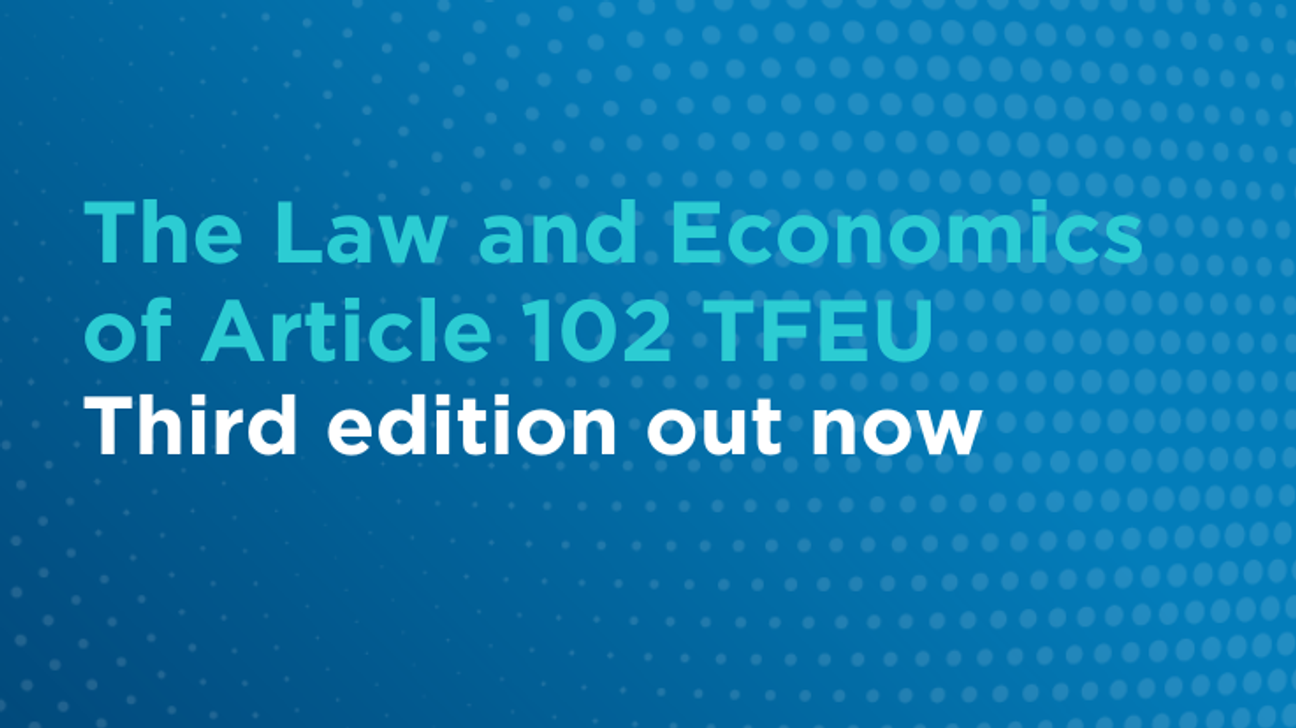The Law and Economics of Article 102 TFEU - Third Edition

Share
Jorge Padilla of Compass Lexecon co-authors, with Robert O’Donoghue of Brick Court Chambers, the third edition of this book which examines the legal and economic principles that underpin the application of Article 102 TFEU to the behavior of dominant firms.
The third edition of this work has seen a substantial change from previous editions, including a new chapter on Abuses in Digital Platform Markets (Chapter Seventeen). These significant changes have been prompted by a series of developments, including European Commission decisions in cases such as Google Android, Google Shopping, AdSense, Qualcomm (predation), and Qualcomm (exclusivity) that raise new and fundamental issues of principle. In addition, profound changes at the EU Court level, such as the Intel case, have the potential to reorient or even redefine the concept of abuse under Article 102 TFEU.
In his Foreword, Nils Wahl comments: ‘the 2017 Intel judgment has undoubtedly affected the application of Article 102 TFEU in a way that extends beyond the area of rebates. On the one hand, it crystallised “consumer welfare” as the primary objective of Article 102 TFEU, and, on the other hand, it seems to have brought, once and for all, an end to the long-standing debate on whether the application of Article 102 TFEU should move towards a more “effects-based approach”. In fact, following this judgment, a demonstration of anticompetitive effects based on solid economic analysis is to be expected in every Article 102 TFEU decision and the latest Commission decisions seem to fully endorse this approach. It follows that this last edition of the book comes at a time when attention will focus on the way the EU Courts, and the General Court in particular, will review decisions based on complex economic considerations. In this regard, the General Court will be called to exercise its full powers of judicial review and possibly revisit the limits to the margin of appreciation that the Commission enjoys in respect of complex economic considerations. I am positive that the EU Courts have the ability, will, and resources to properly carry out such a demanding level of judicial review, which I am hopeful will be fully appraised in a future fourth edition of this book.’
Read the Foreword by Judge Nils Wahl
Purchase the Third Edition
Watch the authors discuss the content of the new edition in a short video (10:32)


